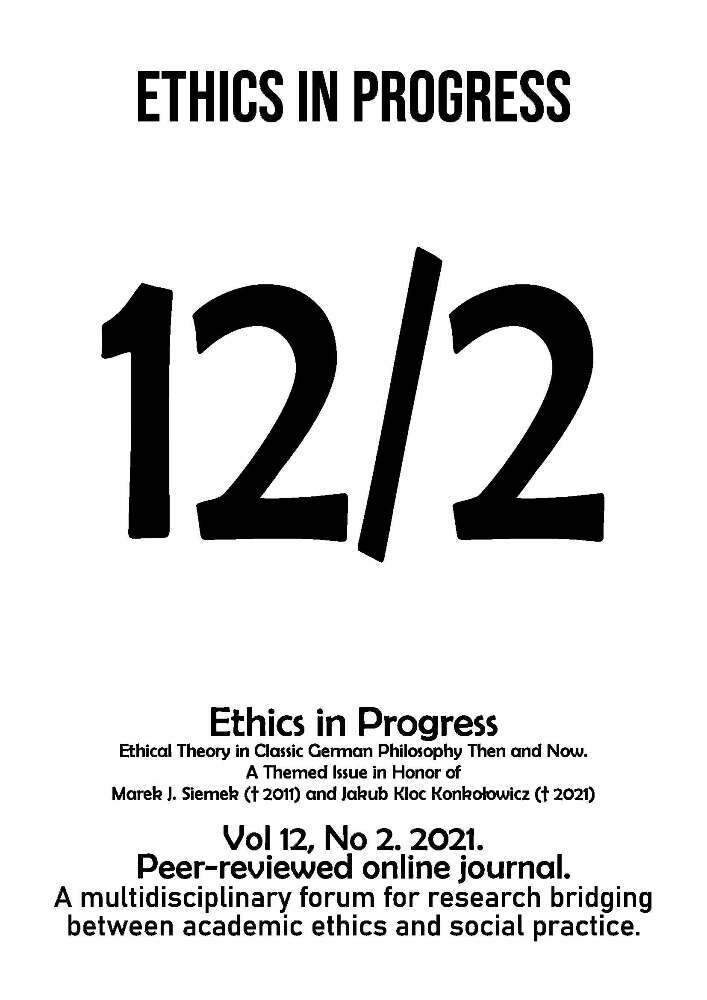Abstract
In Kant’s writings, we can discover four key moments in the realization of moral freedom: i) The original possibility of being free, ii) The act described by Kant as radical evil, iii) The opposite act, that is, an inner conversion to good, and, finally, iv) The long process of the self-development of virtue extending to immortality. There are further issues such as the double concept of moral evil, and practical temporality. Moral freedom is originally located (and presupposed in Kant’s transcendental deduction) in the individual, her decisions, and the maxims or principles that guide her actions, even though a community (as both a „kingdom of ends” and social reality) provides the scope wherein all this takes place and its socially and historically-situated shapes. This paper tries to systematize these crucial stages of Kant’s moral philosophy with the focus on the concept of virtue.
References
Kant I. 1900–. Gesammelte Schriften. Berlin: Akademie-Ausgabe (AA).
Kant I. 1996a. Practical Philosophy, trans. and ed. by M. J. Gregor. Cambridge: Cambridge University Press.
Kant I. 1996b. Religion and Rational Theology, trans. and ed. by A. W. Wood & G. di Giovanni. Cambridge: Cambridge University Press.
Kant I. 1998. Critique of Pure Reason [abbr. CPR], trans. and ed. by P. Guyer & A. Wood. Cambridge: Cambridge University Press.
Kant I. 2000. Critique of the Power of Judgement, trans. and ed. by P. Guyer. Cambridge: Cambridge University Press.
Philonenko A. 1981/3. L’œuvre de Kant. Paris: J. Vrin.
Plato 1925. Statesman, Philebus, Ion. Greek with trans. by N. H. Fowler & W. R. M. Lamb. Loeb Classical Library 164. Cambridge, Mass.: Harvard University Press.
Rivera de Rosales J. 2007. “Los dos conceptos del mal moral. De La Religión (1793) de Kant a la Ética (1798) de Fichte”, Signos Filosóficos 9(18):9–40.
Rivera de Rosales J. 1998/20022. Kant: la „Crítica del Juicio teleológico” y la corporalidad del sujeto. Madrid: UNED.
Rivera de Rosales J. 2007: “Kant: la buena voluntad,” in idem, Cómo se comenta un texto filosófico (pp. 121–147). Madrid: Editorial Síntesis.
Schelling F. W. J. 1856/61. Sämmtliche Werke. Stuttgart – Augsburg: Cotta.





